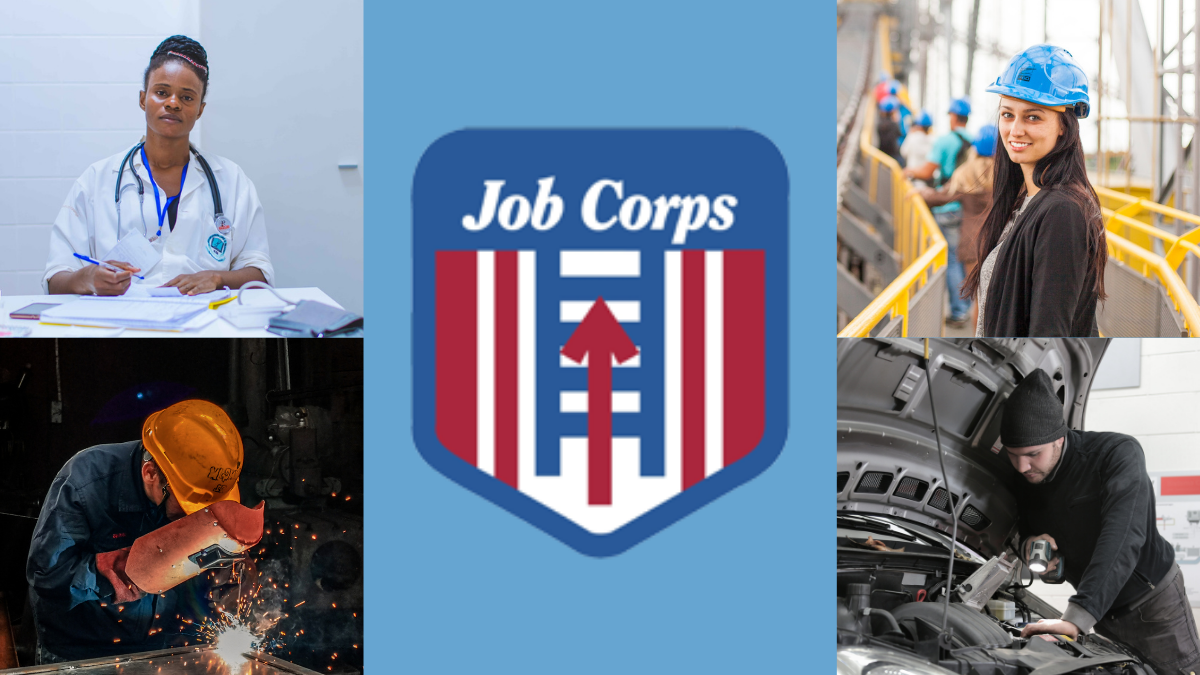In a globally competitive economy, students from low-income families often struggle to gain educational opportunities that lead to good-paying jobs. According to the latest numbers from the U.S. Census Bureau, America’s poverty rate in 2019 was 10.5 percent—a number that has been steadily decreasing. This is the fifth consecutive annual decline in poverty, which is good news. However, for those students who are from low-income families challenges still exist. These students tend to have higher instances of absenteeism, or leaving school completely, due to obligations to seek wages for their family or to care for other family members.
Since 1964, one program has been working to provide advantages to these students. Job Corps is the largest nationwide residential career training program in the country. The program helps eligible students ages 16 through 24 to complete their high school education, train for a meaningful, in-demand career, and obtain employment—all at no cost. With centers located across the country, it is a program that all eligible families should explore.
Most students in the program live in a dorm at one of the Job Corps centers, though commuting is also an option, and Job Corps provides training, housing, meals, basic health care, a living allowance and career transition assistance--all at no cost to students. Participants progress through their training at their own pace, but are limited to two years in the program.
If they have not yet finished high school, they will complete their high school education at the center in addition to learning the basics of the career field they have chosen. They can even earn their driver’s license at the center if they don’t have one yet.
Job Corps in Virginia
Virginia is home to three job centers: Old Dominion (in Monroe, VA), Blue Ridge (a female-only center in Marion, VA) and Flatwoods (in Coeburn, VA). The various centers offer different training programs. For instance, the Blue Ridge center’s programs are all focused on the healthcare field. The other two centers offer programs in skilled trades such as carpentry, electrical, painting and plumbing along with healthcare or office administration programs.
The program is designed to ensure programs are offered in high-demand career areas for each state. “For Virginia, we have 16 trades that we offer through our three Job Corps centers,” explained Virginia Job Corps Admissions Counselor Yvette Rodriguez. “Our 16 trades represent careers with the highest current demand for workers who will earn the highest hourly pay for all entry-level jobs in the state of Virginia.”
Job Corps Centers have relationships with local employers who often turn to the center for new hires. “There is a company in Northern Virginia that comes to the Old Dominion site since they know that we offer the Building Facility Maintenance program, and they hire our students to work in some of the residential buildings in Northern Virginia, where they pay pretty well.,” Rodriguez said.
The centers resemble college campuses with a gym, library and recreational activities as well as transportation for off-campus outings. For many students, working with instructors within their chosen field is more enticing than spending a typical day in a high school classroom, and they find they perform better in their classes.
“What I like about program is that the trainings they offer students are hands on; they actually get to do the work,” Rodriguez said. “For example, an auto repair student can spend all day working on that particular car until they actulaly feel comfortable,”
In fact, each day is like a work day with training lasting from 8:00 a.m. until 4:00 p.m. Students work at their own pace to master the material.
The hands-on learning is what student Ebony Price said she really enjoys about the program. She is enrolled at the Blue Ridge campus and is currently training in the Certified Medical Assistant program. Her long-term goal is to become a traveling nurse. She said she has always enjoyed helping people and wanted to go to nursing school, but the cost seemed prohibitive.
The Blue Ridge campus is one of many centers that has a partnership with its local community college, Rodriguez explained. If students apply to the college’s Licensed Practical Nursing program and get accepted, Job Corps provides housing and transportation, and the cost of the program is offset by assistance such as scholarships, a Pell Grant and additional Job Corps funds.
Since students learn at their own pace, they control how quickly they advance through their training — another aspect of the program that Price enjoys.
“As long as you're testing and trying to get stuff done, then it's basically up to you,” she explained. “A normal day for me, say I want to go ahead and get started on chapter three of my medical terms. I would study for that week, go take a test. If I pass it, then I just get started on another one, but if I fail, I have to wait until either the next day, or however long it takes me to study the terms to get it right.”
But it isn’t all work and no play. “The classes are fun. We have a lot of fun, and we get to go on trips as well,” she said. “They have a lot of opportunities, and it has really helped me out, personally. It's helped me a lot with my communication skills and just being more interactive with other people.”
Though centers nationwide are still currently closed due to concerns about the pandemic, Ebony is anxiously awaiting the day she can return to campus and resume her hands-on training.
“I would tell anybody who thought about Jobs Corps to do it,” she said. “It’s awesome.”
Visit Virginia Job Corps to learn more.
Skilled trades provide workers with skills they can use anywhere in the world. To learn more about other local training programs for skilled careers, visit our Resources page.
Sources:
census.gov
childrensdefense.org
dosomething.org



